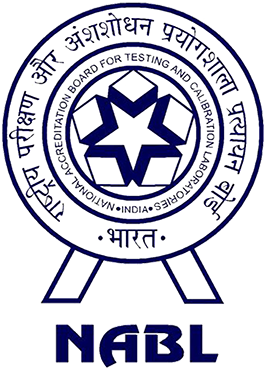Helicobacter Pylori-H.Pylori-Antigen stool
The Helicobacter pylori (H. pylori) antigen stool test detects the presence of H. pylori antigens in a stool sample. H. pylori is a type of bacteria that can infect the stomach lining and is a common cause of peptic ulcers, chronic gastritis, and can contribute to the development of stomach cancer.
**Test Purpose:**
- **Detection of Infection:** Identifies current H. pylori infection by detecting bacterial antigens in the stool.
- **Monitoring Treatment:** Evaluates the effectiveness of treatment for H. pylori infection, as the absence of antigens post-treatment indicates successful eradication of the bacteria.
**Test Interpretation:**
- **Positive Result:** Indicates an active H. pylori infection.
- **Negative Result:** Suggests the absence of an active infection, although it does not rule out a past infection that has been cleared.
This non-invasive test is commonly used due to its simplicity and accuracy, helping in diagnosing H. pylori-related gastrointestinal conditions and monitoring treatment outcomes.
Helicobacter pylori (H. pylori) is a spiral-shaped bacterium that infects the lining of the stomach and is one of the most common bacterial infections worldwide. It is typically acquired during childhood and can persist throughout life if not treated. H. pylori is a major cause of peptic ulcers, chronic gastritis, and has been linked to the development of gastric cancer and mucosa-associated lymphoid tissue (MALT) lymphoma.
The bacterium is adapted to survive in the harsh acidic environment of the stomach by producing urease, an enzyme that neutralizes stomach acid. H. pylori infection is often asymptomatic but can lead to symptoms such as abdominal pain, bloating, nausea, and in severe cases, bleeding ulcers.
Diagnosis of H. pylori infection can be done through various methods, including breath tests, blood tests, stool antigen tests, and endoscopic biopsies. Treatment typically involves a combination of antibiotics and proton pump inhibitors to eradicate the infection and reduce stomach acid.
Helicobacter pylori (H. pylori) एक सर्पिल आकार का बैक्टीरिया है जो पेट की परत को संक्रमित करता है और दुनिया भर में सबसे आम बैक्टीरियल संक्रमणों में से एक है। यह आमतौर पर बचपन में प्राप्त होता है और यदि उपचारित न हो तो जीवन भर बना रह सकता है। H. pylori पेप्टिक अल्सर, क्रोनिक गैस्ट्राइटिस का एक प्रमुख कारण है और गैस्ट्रिक कैंसर और म्यूकोसा-एसोसिएटेड लिम्फोइड टिशू (MALT) लिम्फोमा के विकास से जुड़ा हुआ है।
यह बैक्टीरिया पेट के कठोर अम्लीय वातावरण में जीवित रहने के लिए अनुकूलित है, क्योंकि यह यूरियस नामक एंजाइम का उत्पादन करता है, जो पेट के अम्ल को निष्क्रिय करता है। H. pylori संक्रमण अक्सर बिना लक्षणों के होता है, लेकिन पेट में दर्द, सूजन, मितली और गंभीर मामलों में रक्तस्रावी अल्सर जैसे लक्षण पैदा कर सकता है।
H. pylori संक्रमण का निदान विभिन्न तरीकों से किया जा सकता है, जिसमें श्वास परीक्षण, रक्त परीक्षण, मल एंटीजन परीक्षण और एंडोस्कोपिक बायोप्सी शामिल हैं। उपचार में आमतौर पर संक्रमण को समाप्त करने और पेट के अम्ल को कम करने के लिए एंटीबायोटिक्स और प्रोटॉन पंप इनहिबिटर्स का संयोजन शामिल होता है।
We provide blood tests in Noida, Gurgaon,
Faridabad,
Delhi,
Indirapuram, Ghaziabad, , Greater Noida, and Greater Noida Extension(west).
















